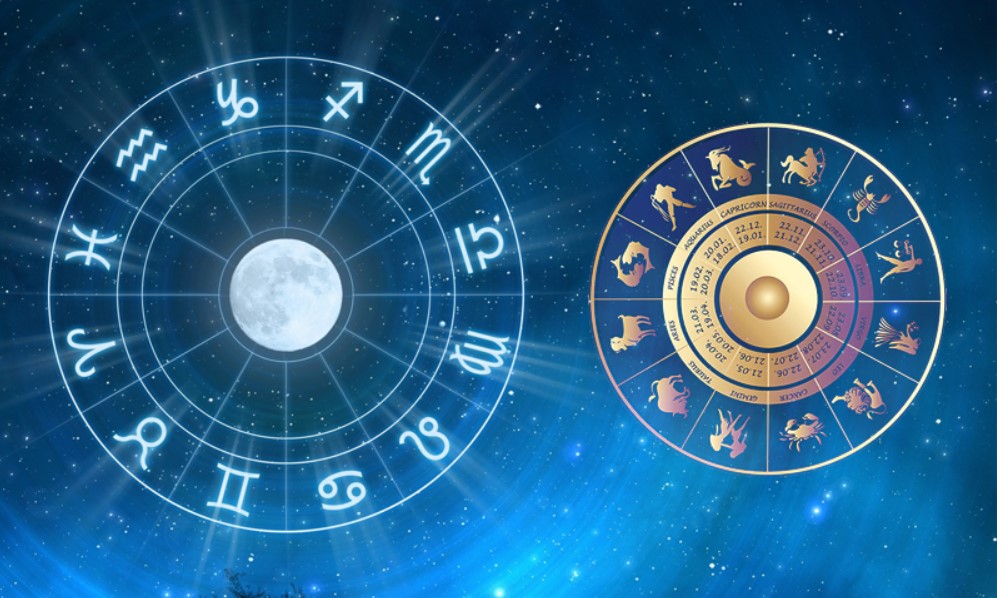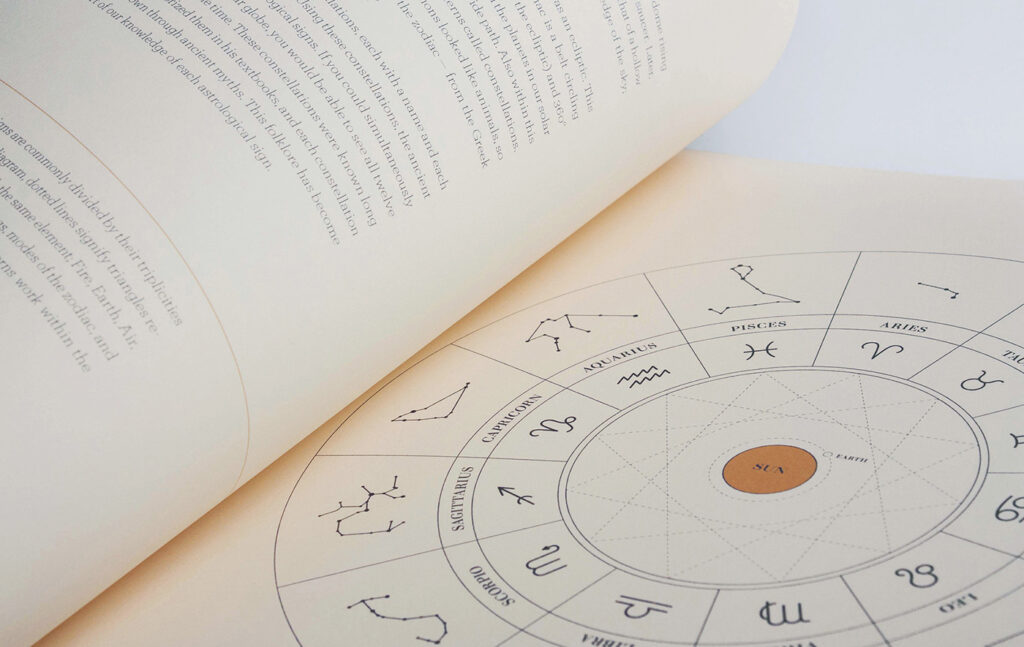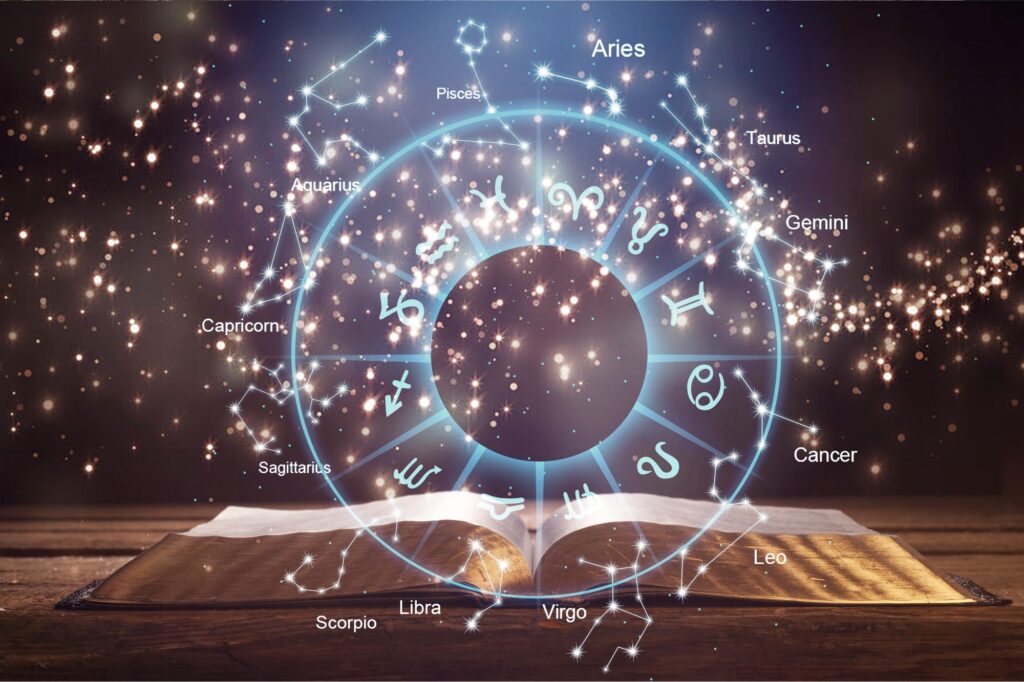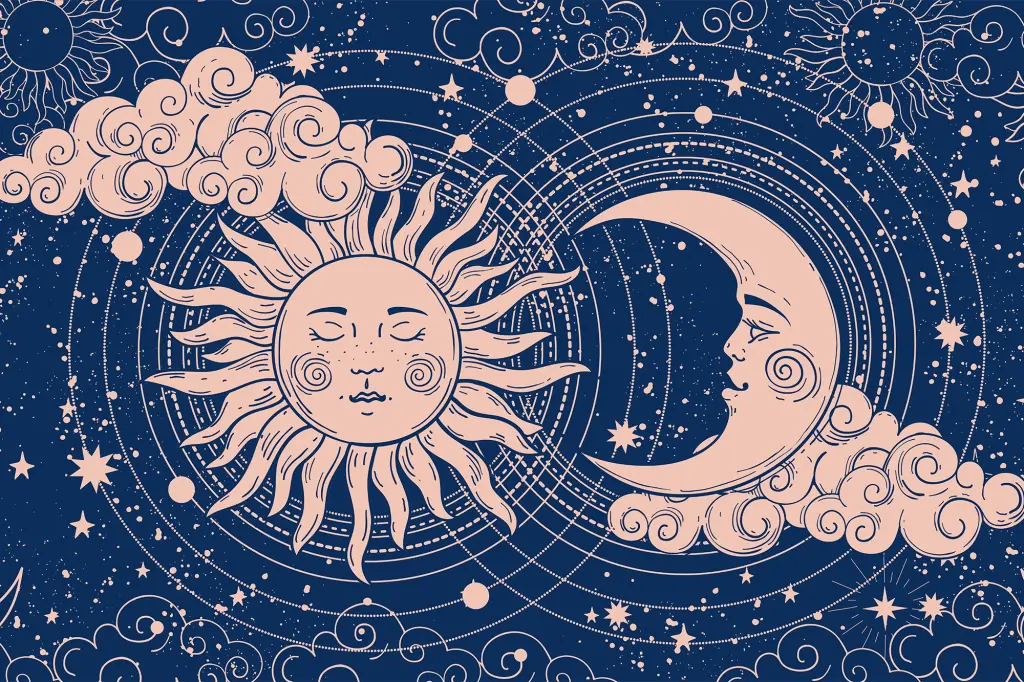If you are familiar with astrology, you must have heard about Vedic astrology and Western Astrology before. They are two of the most popular astrological practices in the world. Although lots of individuals consider forms of astrology to have numerous similarities, there are significant differences between them. So, if you would like to know these differences, you have come to the right place.
In this article, we will explain the differences between Western astrology and Vedic astrology as well as how horoscopes changed over time.
Vedic vs Western Astrology: Meaning and Origin

Source: indastro.com
Vedic astrology is a system that studies the stars and planets, and how they affect the horizon. This astrological system originated in India and is popularly known as Jyotish, which means ‘the wisdom of the heavens or ‘the science of light’. While it can be quite challenging to say the exact time when Vedic astrology started, it has been estimated to have begun around 5,000 to 10,000 BC. It is noteworthy that this practice has its root in the Vedas, which are ancient texts in the philosophy and religion of the Hindus.
On the other hand, Western astrology is a system of divination established on the principles of tropical horoscopes. In other words, it takes advantage of horoscopes based on the birthdate as well as the location of an individual. Western astrology started much later than Vedic astrology. Historically, it was first recorded in the 2nd century C.E. according to the textbook ‘Tetrabiblos’ written by Ptolemy, a famous Greek philosopher. Notably, Greek philosophers combined geometry and numerology with stargazing to start Western astrology. Even though Western Astrology came from Babylonian and Hellenistic practices, it doesn’t have as much religious influence as Vedic astrology.
From its birthplace, Western Astrology spread to other parts of the Western world as more individuals started accepting it.
Vedic vs Western Astrology: Use of different timing systems
Basically, Western astrology uses the Gregorian calendar as well as the four seasons. Using the calendar, Western astrologers consider the tropical Zodiac which is based on the belief that the celestial bodies are revolving around the earth and utilizes the vernal equinox to determine the start of the first sign called Aries.
Comparatively, Vedic astrology is quite different from its counterpart as it relies on the sidereal system. Unlike Western astrology, the sidereal system of Vedic astrology considers observation constellation which tends to change from time to time. As a result of this, Vedic astrology is not always the same and its starting point can change whereas the timing of Western astrology is always fixed.
It is noteworthy that the timing systems of these two forms of astrology were once in the same position several centuries ago. This means that the readings of Vedic astrology were similar to those of Western astrology. But as the precession of equinoxes changed, the two systems also started becoming different. Resultantly, the zodiac dates of Vedic and Western astrology are always not the same.
Vedic vs Western Astrology: Orientation

Source: behance.net
When considered holistically, there is a massive difference in the orientation behind the use of both Vedic astrology and Western astrology. Today, Western astrology is focused more on psychological orientation. It talks about how Zodiac signs influence the way we act.
Vedic astrology, on the other hand, is all about karma and dharma. Karma means that every individual tends to be rewarded or punished for things they have done in the past. Additionally, Vedic astrology helps people to get more essential insights that can aid personal dharma. By doing this, it can assist individuals to learn more about their special talents as well as their problems.
Vedic astrology can also make a big difference in ensuring that a person knows more about how they can relate with their spouses, friends, family, and others around them. Consequently, it is not surprising that Vedic astrology is believed to be capable of helping people to deal with emotional rollercoasters.
Vedic vs Western Astrology: Retrogrades and planetary elements
Another important difference between these two astrological systems is their view of retrogrades and planetary elements. In Vedic astrology, every planet features varying specific elements that make it different from the others. Besides, each planet comes with a wide range of strengths that are influenced by specific elements. In addition, a person’s rising sign is believed to be more crucial to their life than their sun sign. Given this, Vedic astrology always considers the rising sign instead of the sun sign.
In this regard, Western astrology is quite different. Basically, Western astrology considers all planets to have the same elements. From opposition to trine and sextile, the planets are believed to be similar.
Vedic vs Western Astrology: Accuracy of the readings

Source: lateet.com
When it comes to accuracy, there is a difference between these two types of astrology. According to many groups, Vedic astrology uses a more reliable system than Western astrology. As a result of this, it is believed that the astronomical principles of Vedic astrology are more accurate than those of Western astrology. Before predicting anything, Vedic astrologers consider the dasas and natal chart to study the transiting of various planets.
In addition, Vedic astrology uses the moon as a reflection of emotions and moods. Therefore, astrologers always utilize the position of the moon as a tool for analysis and forecasts. As a consequence of this, Vedic astrology tends to provide more accurate and reliable predictions that its Western counterpart. But it is important to know that astrological predictions are not always 100% correct. Therefore, you should always leave room for discrepancies when getting the readings of astrology.
Regardless of your preference, it is undeniable that both Western astrology and Vedic astrology have grown in influence over the last few years. Many individuals now consider at least one of them for accurate predictions. If you are struggling to choose between these two options, you may want to use the findings of both forms from time to time.













